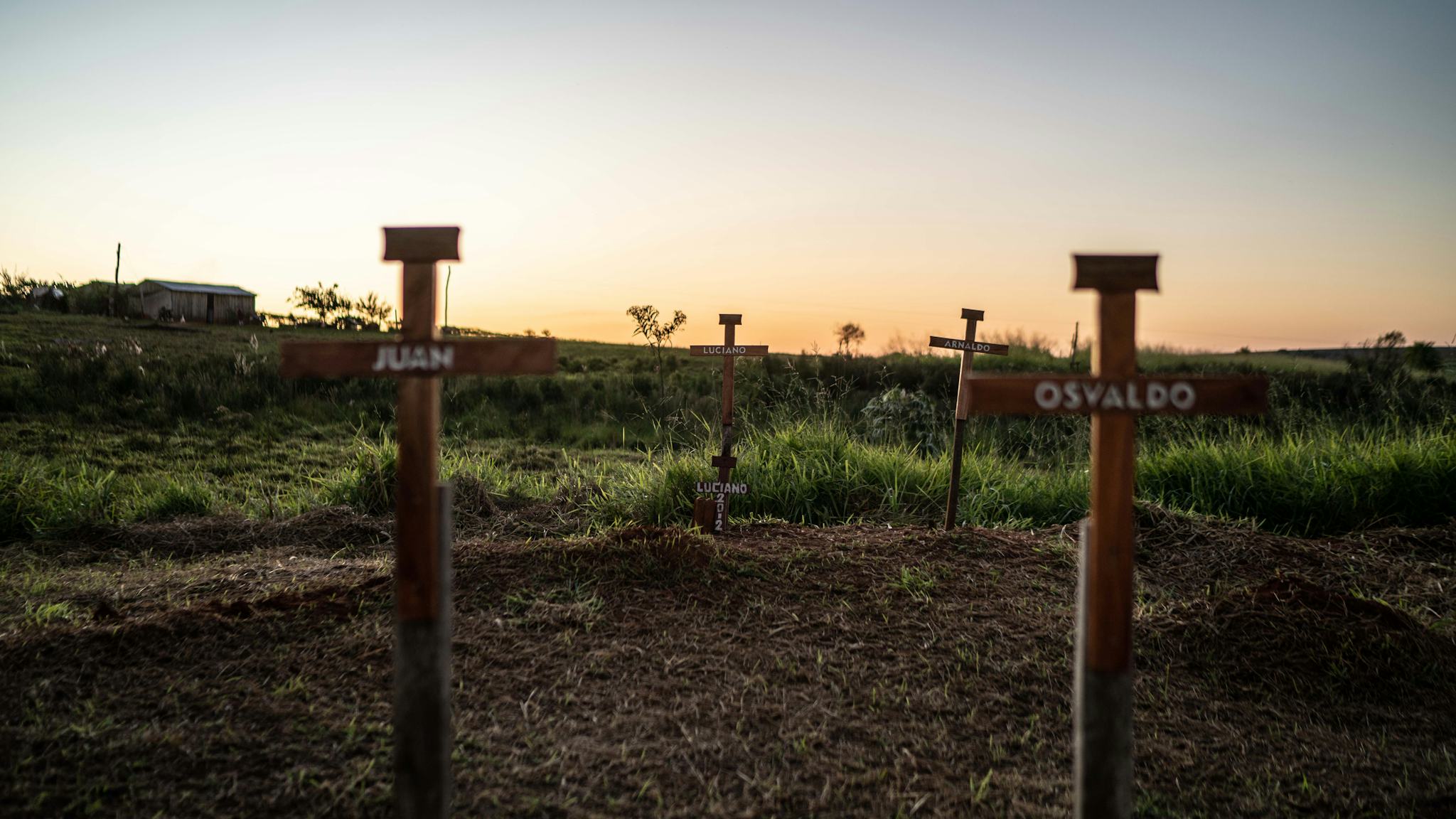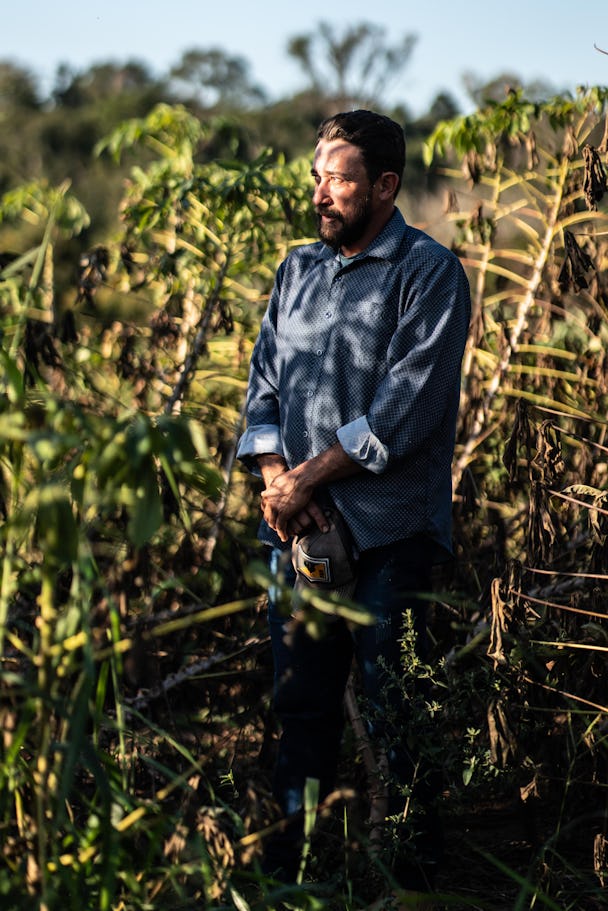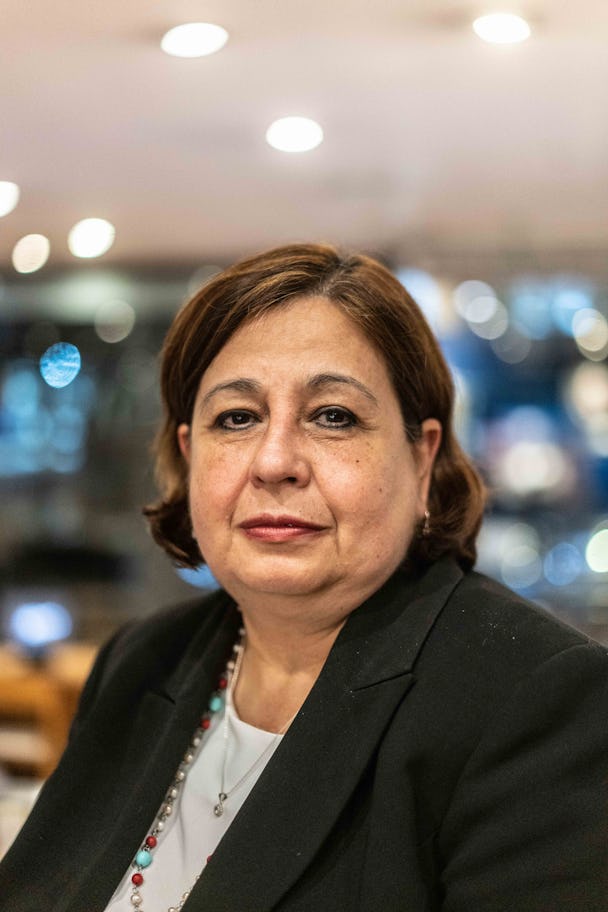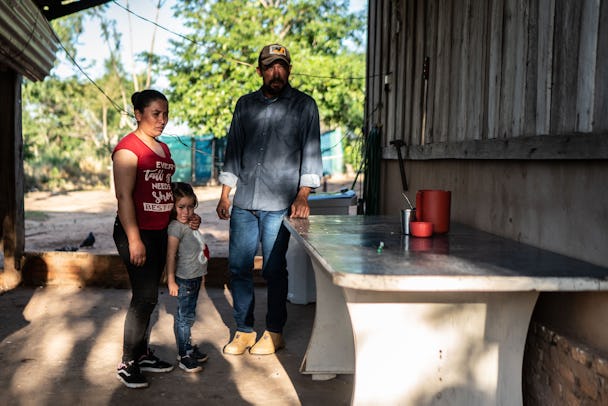The hope of a more equal Paraguay died at Curuguaty – along with eleven landless farmers
When the smoke cleared eleven landless farmers and six police officers had been killed. Ten years have passed since the massacre at Curuguaty, which paved the way for a coup-like power shift in Paraguay.

17 people lost their lives in the massacre. The landless farmers who died have been buried on the disputed plot of land.
It’s the tenth anniversary of the massacre at Curuguaty. Nestor Castro recalls the very second when everything went to hell that early dawn.
“Everything was quiet, like a silent movie”, he says.
On 15 June 2012, 30-odd peasant families were surrounded by police and military forces.
Who fired first remains unclear – witnesses have talked about snipers hidden in the bushes – but a gunshot went off and before long bullets were sprayed like rain over Nestor Castro and his friends.
For a long time, they had claimed and fought for access to this lot, called Marina Kué, and now they fell to its ground.
17 killed in the massacre
A land purchase had changed everything shortly before this bloody Friday in mid-June.
The now deceased businessman Blas Riquelme, also a prominent member of Paraguay’s historically governing party, Colorado, was set on using the lot for growing genetically modified crops, such as soybeans, rice, and maize.
Now, his political and financial influence had manifested in an eviction party, several hundred men strong, that fired at everything that moved.
One sitting duck was Nestor Castro.
“One bullet ripped my chin apart”, he recalls. “But I didn’t lose conscience, and I managed to flee into the woods. There, I almost bled to death.”

No police officers were charged
He was taken to a nearby health centre. His body was lame. Eleven landless peasants and six police officers had been killed in what soon became infamously known as “The Massacre at Curuguaty”.
Despite the fact that Nestor Castro had neither been armed nor could be tied to any of the seventeen deaths, he was charged and sentenced for instigating the massacre.
The moral and legal responsibility was officially and solely placed on the shoulders of the landless peasants – no police officers were ever charged for any crime.
“It was a cover-up that continues to this day”, says Nestor Castro. “I was released in 2017, but everything my family had to go through, the fact that I only have four natural teeth left in my mouth, nothing’s been properly investigated.”
Nestor Castro enjoys the shade provided by the home he has raised not far from the heart of the inferno a decade ago.
He remains a landless and occupying peasant in what is one of the planet’s most unequal countries in terms of access to land. A country where it since the autumn of 2021 is a criminal act to occupy unused state-owned land, even when the purpose is subsistence farming.
Those who defy the ban risk ten years imprisonment.

Hopes of a fair Paraguay
In June 2012, a widespread hope for real change swept through Paraguay.
The former bishop and liberation theologian Fernando Lugo had won the Presidential election in 2008, making history as Paraguay’s first – and to this day one and only – President rooted in the political left.
Lugo’s mandate, though, was weak and fragile, and rested upon support from political opponents – one being the Liberal Party who now used the massacre at Curuguaty as a pretext to launch a government crisis.
“Curuguaty was the result of the teamwork of the oligarchs”, says Esperanza Martínez, in 2012 Minister of Health in Fernando Lugo’s coalition government, and Presidential candidate for the left alliance Frente Guasú in 2023.
“The soy lobby and the political right put a halt to our reform packages and environmental laws.”
Coup-like power shift
On 22 June President Lugo was toppled in a coup – or no-confidence vote, depending on who you ask.
The impeachment process had both political and financial motives, and President Lugo was given a mere seventeen hours to prepare his legal defence against charges of responsibility for the massacre and abuse of power, among many others.
The interim government hastily dismantled the Lugo government’s implemented environmental laws. That was the motive behind the coup, says Esperanza Martínez.
“To pave the way for an expansion of genetically modified versions of soybeans, maize, and rice”, she says.

“Got all the blame”
Ten years later, Paraguayan media outlets remain silent about President Fernando Lugo’s downfall. The same silence echoes from the nation’s Congress – despite the date’s being the starting point of a rapid dismantling of democracy, state-sanctioned landgrabbing, and an ongoing deforestation at a pace quicker than in the Amazon Basin.
At the still-occupied lot of Marina Kué, the massacre turned into a lasting scar. Crosses bearing the names of the victims run deep into the red soil. Today, the Paraguayan peasant movement is shattered. Many have moved to the cities or have migrated to Argentina.
“What hurts the most is that we, despite all the evidence of the contrary, were blamed for what happened”, says Nestor Castro.
A possible prison sentence for tending a piece of land owned by the Paraguayan state scares of some, but to others it’s still the only way to fend off hunger.
Nestor Castro drills one boot into the ground and shakes some dust. He’s going nowhere.
“There’s no alternative”, he says. “Nothing will ever stop me from continuing the fight for a just Paraguay. Nothing.”
Paraguay
Paraguay has a population of little over seven million people, and neighbours Argentina, Bolivia, and Brazil. Soybeans for animal fodder, meat, and vegetable oils are essential export products.
Poverty remains widespread and Paraguay is one of the world’s most unequal countries in terms of land distribution. A mechanised agriculture has paved way for unemployment in rural areas and an increasing number make a living as low-paid labourers within the construction and transport industries of Argentina and Brazil.
Amnesty International has underlined the importance of reforms when it comes to women’s rights. Paraguay’s indigenous peoples are severely hit by deforestation in the country’s northern and western corners.
Sources: Amnesty International, Movimiento Campesino Paraguayo, OHCHR, World Bank.








